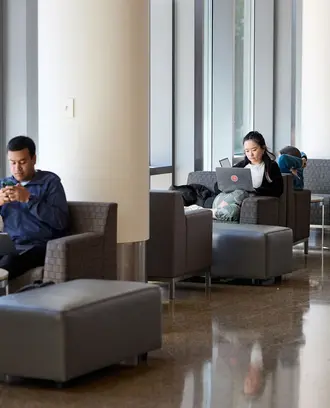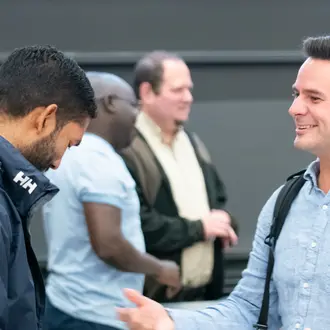“The media landscape is full of futurists, academics, and members of think tanks making erratic predictions about robots eating jobs,” says Tom Kochan, George Maverick Bunker Professor of Management at MIT Sloan. “Even the World Economic Forum has published some wild numbers about anticipated job loss and job creation linked to advanced technologies. The problem is that few of those forecasters are managers in the workplace, and managers will have the greatest influence on how this plays out.”
What the alarmists are missing, in Kochan’s view, is that technology tends to move relatively slowly through organizations, and that human integration is essential to making the most of automation. “General Motors learned this lesson the hard way in the 1980s,” Kochan says. “In an effort to catch up with more efficient Japanese competitors, GM invested nearly $50 billion in robots. Rather than becoming more competitive, the company ended the decade as a high-cost producer because it failed to upgrade its workforce and change its work practices in ways that made the new technologies pay off.”
Déjà vu all over again
Thirty years later, Tesla demonstrated the relevance of that lesson to contemporary manufacturing. The company’s total automation strategy resulted in production shortfalls, investor dissatisfaction, and a push by workers to unionize in the face of what they viewed as persistent safety problems, overwork, and low wages.
“Ironically,” says Kochan, “the Tesla failure happened at the same plant in Fremont, California where Toyota achieved high levels of productivity with its gradual process of introducing technology and working with workers and their union.” Tesla’s founder, Elon Musk, ultimately conceded that “humans are underrated” and that successful automation is a complex balancing act of human and machine skills, among other factors.
We’re all in this together
“My experience is that corporate leaders, MBA students, and mid-career managers have much the same goals for their organizations as the people who work at lower levels of their companies,” Kochan says. Rather than surrendering to the self-serving vision of a technology creator or salesperson, executives and managers must think hard about what problems any given technology can solve within their organizations.
“The choices are ours to make, and history shows us that when companies think carefully about what problems a particular technology can solve, more people up and down the line feel invested and the outcomes are more productive. You must never let technology box you into organizational practices that don’t work for your company.”
The future of work
Kochan and co-teacher Elisabeth Reynolds, executive director of the MIT Task Force on the Work of the Future, tackled those challenges head on with their new online course Shaping the Work of the Future. Offered on the edX platform during Sloan Innovation Period (SIP), the course is free and open to the public.
“A key goal of the course is to communicate to a broad spectrum of workers around the world—young and experienced, frontline and leaders in business and government—that they can affect the future of work‚” explains Kochan. “There are no iron-clad laws of technology and globalization. If we take active roles in managing these things, we can influence how they turn out.”
Key insights from a global cohort
Kochan notes that the first cohort of course participants related strongly to the idea that leaders engaging with new technologies must be systems integrators and organizational change agents for their companies. Participants also affirmed that a new social contract must be forged between management and workers.
“In industry after industry, two dominant themes emerged,” says Kochan. “First, company leaders must invest in training and preparing their workers to be continuous learners, and these efforts must be supported with resources from the government and education sectors. Second, organizations must give workers a meaningful voice in decisions about introducing new technologies into existing organizational practices. This should include rebuilding unions in a modern way that engages women, minorities, and younger workers. We know from countless examples—both positive and negative—that genuine engagement on substantive issues across all levels of an organization leads to the most creative and productive outcomes.”
Kochan is the first-ever winner of the International Labour and Employment Relations Association Academic Excellence Award. The award was created in 2017 to recognize outstanding academic achievements in the field of labor and employment relations. His latest book is Shaping the Future of Work: A Handbook for Action and a New Social Contract.



